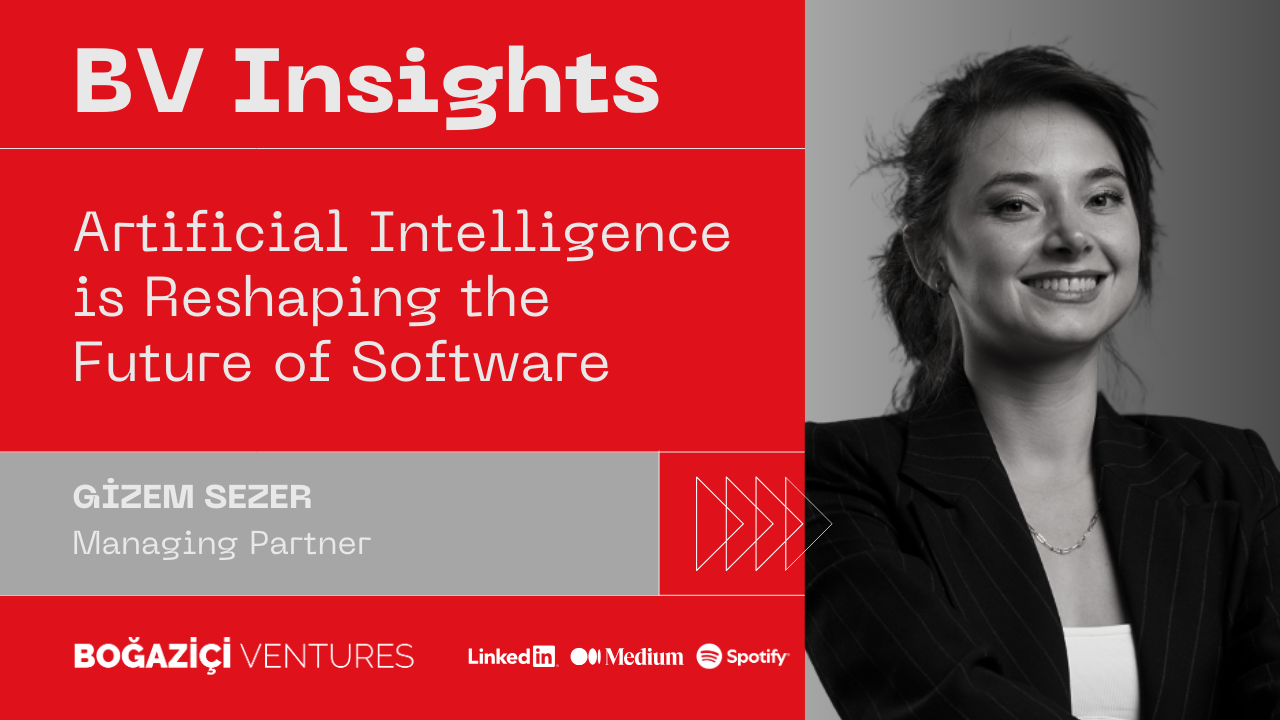Artificial Intelligence is Reshaping the Future of Software
Artificial intelligence is fundamentally transforming software development processes, driven by falling costs and advances in foundation models. Developers now rely on AI-powered tools across the entire lifecycle—from ideation to testing and maintenance. Progress in reasoning capabilities enhances models’ ability to plan and iterate in problem-solving, while longer context windows allow them to retain more information for complex tasks.

Artificial intelligence is fundamentally transforming software development processes, driven by falling costs and advances in foundation models. Developers now rely on AI-powered tools across the entire lifecycle—from ideation to testing and maintenance. Progress in reasoning capabilities enhances models’ ability to plan and iterate in problem-solving, while longer context windows allow them to retain more information for complex tasks.
Research shows that as software development costs decline, demand for AI-based solutions offering far greater business impact than previous generations will surge. In this evolution, platform services and infrastructure software—those that build, run, and secure applications using AI and data—will represent the most advantageous layers of the technology stack.
Three Key Drivers of the AI Era
Advanced Reasoning and Planning
Next-generation models go beyond producing responses; they can plan complex tasks step by step, detect and correct their own mistakes during execution, and simulate scenarios to minimize risks. This results in faster, more consistent outcomes in software development with less human intervention.
Deeper Contextual Understanding
With larger context window capacities, models can retain the entire history of a project. For instance, they can analyze hundreds of pages of technical documentation or thousands of lines of code in a single session, providing more accurate recommendations and preventing faulty integrations.
In this context, Sam Altman’s claim that “a baby born today will never be smarter than AI” seems to align with comparative data on the evolving performance of AI systems and humans across domains.
The Great Cost Breakthrough
According to ARK Invest, the operating cost of models with coding performance indexes has dropped by 98.7% in just six months. Price per million tokens declined from $26.25 to $0.35.
Hardware efficiency improvements (GPU optimizations, specialized AI chips)
Innovations in model architecture (higher performance with fewer parameters)
Intense competition (price wars among OpenAI, Anthropic, Google, Meta, etc.)
This cost decline affects not only technology companies but also SMEs and public institutions. For example, through an agreement with OpenAI, more than 2 million U.S. federal employees will gain access to the latest ChatGPT version for just $1 per year. Small and medium-sized businesses, previously unable to adopt AI solutions due to high costs, can now implement AI-based automation systems at low budgets. This shift fosters greater competition and innovation across the market.
Sectoral Impact
While no benchmark fully reflects real-world performance, analyses indicate—consistent with Wright’s Law—that as costs fall, token demand is surging. Microsoft processed over 100 trillion tokens in Q1, representing a 5x annual increase, while Google’s token output rose 50x in the same period. Though calculated differently, both growth curves follow similar trajectories.
AI-powered integrated development environments (IDEs) are emerging as one of the fastest-growing areas. Deeply integrated into software development workflows, AI-native products such as Cursor and Replit have achieved extraordinary growth momentum.
As models gain new capabilities, the products built on them improve instantly.
Improved products attract more users, whose usage generates proprietary data that further enhances the models.
This virtuous cycle strengthens product quality and competitiveness. Between late 2024 and early 2025, Cursor and Replit increased annual revenues tenfold, while Lovable, founded at the end of 2023, quadrupled its revenues within six months. Notably, this remarkable growth occurred while public cloud software companies shrank by 28% in Q1 2025, underscoring the market share shift toward AI-native startups.
Over the past five years:
Platform layer grew by 22%
Infrastructure layer by 19%
Application layer by 15%
By 2030, these are projected to accelerate to:
39% in platforms
31% in infrastructure
27% in applications
AI-native applications such as ChatGPT and Replit are emerging as new leaders, while traditional applications like ERP and CRM will need to adapt to remain competitive.
The Boğaziçi Ventures Growth II (BVG II) Fund has been launched to invest in early-stage teams in the AI space. Those wishing to seize growth opportunities and become strategic partners in this transformation can learn more by contacting [email protected]
....
For more than a decade, we have been dedicated to contributing to and creating value within Turkey’s technology entrepreneurship ecosystem. During this time, we have leveraged our deep expertise and strong business network to support entrepreneurs. At Boğaziçi Ventures, we believe in shaping our investments by harnessing the power of technology across multiple verticals to deliver sustainable and intelligent solutions.
We invite entrepreneurs to apply for investment discussions via [email protected] . Take the opportunity to grow your technology venture and join our global network today!

